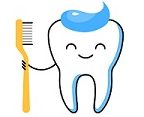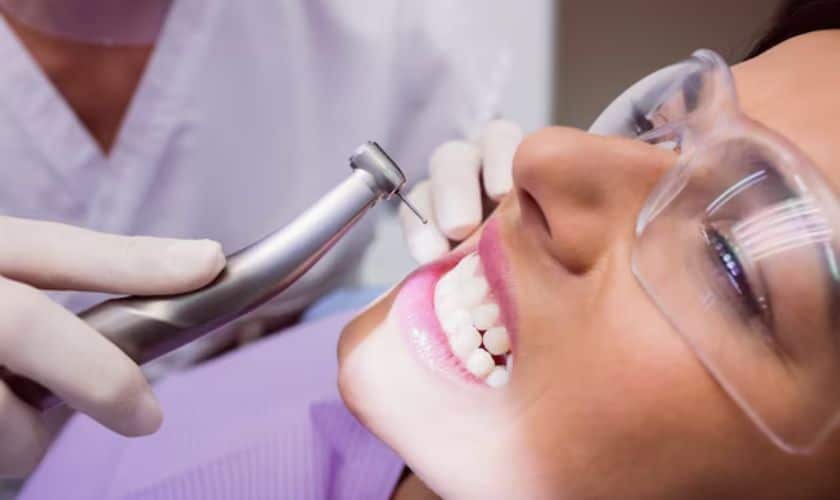What to Expect During a Dental Cleaning
Introduction
Are you due for a dental cleaning but feeling a bit anxious about what to expect? Don’t worry, you’re not alone! Many people experience some level of apprehension when it comes to dental visits. However, understanding the process can help alleviate any fears or concerns you may have. In this blog post, we will walk you through what to expect during a dental cleaning, so you can feel more at ease during your next appointment.
Importance of Regular Dental Cleanings
Regular dental cleanings are essential for maintaining good oral health. They help prevent various dental issues such as cavities, gum disease, and bad breath. During a dental cleaning, a professional dental hygienist will perform a thorough examination and cleaning of your teeth and gums.
Preparing for the Dental Cleaning

Prior to your dental cleaning appointment, it is important to inform your dentist about any medical conditions or medications you are taking. This will help them provide appropriate care during the cleaning process. It is also advisable to brush and floss your teeth before the appointment to ensure a more effective cleaning.
Initial Examination
The dental hygienist will begin by examining your mouth, teeth, and gums. They will check for any signs of oral health issues such as cavities, gum inflammation, or oral cancer. This examination helps them identify any areas that require special attention during the cleaning process.
Scaling and Tartar Removal
Once the examination is complete, the dental hygienist will use specialized tools to remove plaque and tartar from your teeth. This process, known as scaling, helps prevent gum disease and tooth decay. The hygienist will carefully clean each tooth, including the areas below the gumline.
Polishing
After scaling, the dental hygienist will polish your teeth using a gritty toothpaste and a high-powered electric toothbrush. This helps remove any remaining stains and leaves your teeth feeling smooth and clean. The polishing process also helps prevent plaque buildup and keeps your teeth looking bright.
Professional Flossing
Following the polishing, the dental hygienist will floss your teeth to remove any remaining debris or plaque between your teeth and along the gumline. This step ensures that all areas of your mouth are thoroughly cleaned and helps prevent gum disease and cavities.
Fluoride Treatment
Some dental cleanings may include a fluoride treatment. Fluoride helps strengthen your tooth enamel and protects against tooth decay.
Summary
A dental cleaning, also known as a prophylaxis, is a routine procedure performed by dental professionals to maintain optimal oral health. During the cleaning, your dental hygienist will thoroughly clean your teeth and gums, removing plaque, tartar, and any surface stains. They will also assess the overall health of your mouth and provide recommendations for proper oral hygiene practices.
The cleaning process typically involves the following steps:
- Physical Examination: Your dental hygienist will visually examine your mouth, looking for any signs of oral health issues such as cavities, gum disease, or oral cancer.
- Plaque and Tartar Removal: Using specialized tools, your hygienist will carefully remove plaque and tartar buildup from your teeth and along the gumline. This process may involve scraping and scaling.
- Teeth Polishing: After the plaque and tartar are removed, your hygienist will polish your teeth using a gritty toothpaste and a high-powered electric brush. This helps remove any remaining stains and leaves your teeth feeling smooth and clean.
- Flossing and Rinsing: Your hygienist will floss between your teeth to ensure all debris is removed. They may also provide a fluoride rinse to strengthen your tooth enamel and protect against cavities.
- Educational Guidance: Throughout the cleaning, your hygienist will offer guidance on proper brushing and flossing techniques, as well as provide recommendations for oral care products that suit your needs.
Regular dental cleanings are essential for maintaining good oral health and preventing dental probl read this post here ems. By understanding what to expect during a dental cleaning, you can approach your next appointment with confidence and ensure your smile stays.
- Q: How long does a dental cleaning appointment usually take?
- A: A typical dental cleaning appointment usually takes around 30 minutes to an hour, depending on the individual’s oral health and specific needs.
- Q: What happens during a dental cleaning?
- A: During a dental cleaning, a dental hygienist will remove plaque and tartar from your teeth using specialized tools. They will also polish your teeth and may provide fluoride treatment.
- Q: Does a dental cleaning hurt?
- A: Dental cleanings are generally painless. You may experience slight discomfort or sensitivity during the cleaning process, especially if you have sensitive teeth or gum disease.
- Q: Will X-rays be taken during a dental cleaning?
- A: X-rays are not typically taken during a routine dental cleaning. However, your dentist may recommend dental X-rays as part of a comprehensive examination to assess your oral health.
- Q: How often should I get a dental cleaning?
- A: It is generally recommended to have a dental cleaning every six months. However, your dentist may suggest more frequent cleanings if you have gum disease or other oral health concerns.
- Q: Can I eat before a dental cleaning?
- A: It is generally recommended to avoid eating a heavy meal before a dental cleaning. However, a light meal or snack should not cause any issues.
- Q: What should I do to prepare for a dental cleaning?
- A: To prepare for a dental cleaning, you should brush your teeth thoroughly and floss. It is also helpful to provide your dentist with any relevant medical history or changes in your oral health.
- Q: Will my dental insurance cover the cost of a dental cleaning?
- A: Many dental insurance plans cover the cost of routine dental cleanings. However, it is recommended to check with your insurance provider to understand your specific coverage.
- Q: Can I go back to work or school after a dental cleaning?
- A: Yes, you can resume your normal activities after a dental cleaning. There is usually no

Welcome to my website! I am David Macvitie, a dedicated Dental Geneticist with a passion for promoting optimal oral health and providing comprehensive dental care. With years of experience in the field, I am committed to helping individuals of all ages achieve and maintain healthy smiles.

